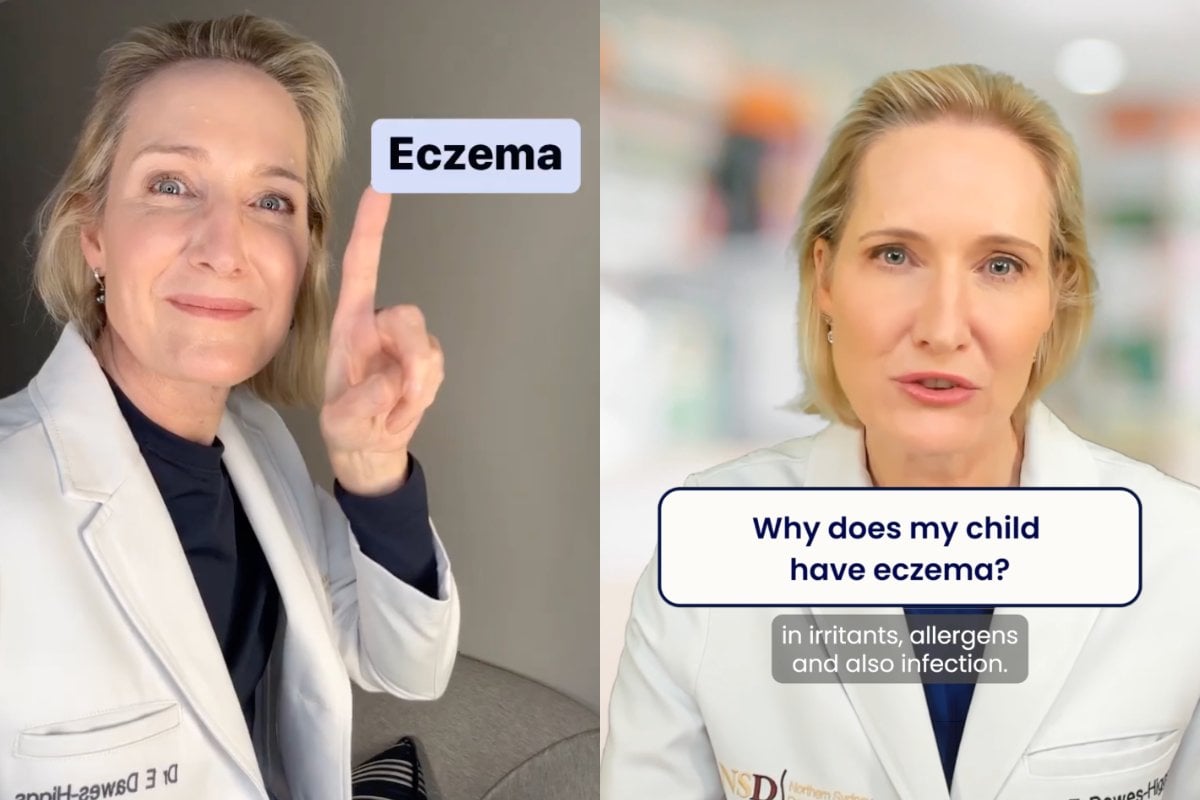

With one in five Australians affected by eczema, the chances are if you don’t have eczema yourself, someone close to you does.
From the discomfort and physical toll of eczema, the mental load of managing symptoms, to the financial strain of finding the right advice and treatment: it can all feel overwhelming to know where to begin.
The use of clinically tested products, like QV Dermcare, is one of the simplest and most accessible steps eczema sufferers can take. Their therapeutic range includes a cleanser and moisturiser, intended for mild to moderate eczema to help improve skin hydration and reduces moisture loss.
A consumer survey found 85 per cent of eczema users experienced fewer flares, irritation and itch, while 92 per cent of mild-to-moderate eczema users experienced relief of itch and dryness after using the range.
For parents, managing their family’s eczema symptoms can be an even greater stress, but dermatologist Dr Liz Dawes-Higgs wants those parents to know they aren’t alone. Mamamia asked parents for their eczema questions, and we took them straight to Dr Liz to unpack.
Let’s start with the basics. What actually is eczema?
"Eczema is a very common skin condition, and it occurs in children and adults. It has a very distinctive rash and is associated with a really intense itch. That's what defines eczema, the itch with a rash, and the rash is different depending on the age of the person."
Why does it itch so much?
"Eczema sets up something we call the ‘itch-scratch cycle'. There’s so much inflammation that occurs with eczema and it releases lots of chemicals into the skin, stimulating the ends of nerve fibres. It sets off something like a pain sensation and an itch, which sends these messages back to the brain that say, ‘hey, this is itchy.’ So you scratch it. Then you set up that cycle, where the more you scratch, the more itchy it gets. That’s because the scratching is inflaming the skin, you're breaking that skin barrier down, making it more itchy. It’s really hard to break that cycle."




























































































